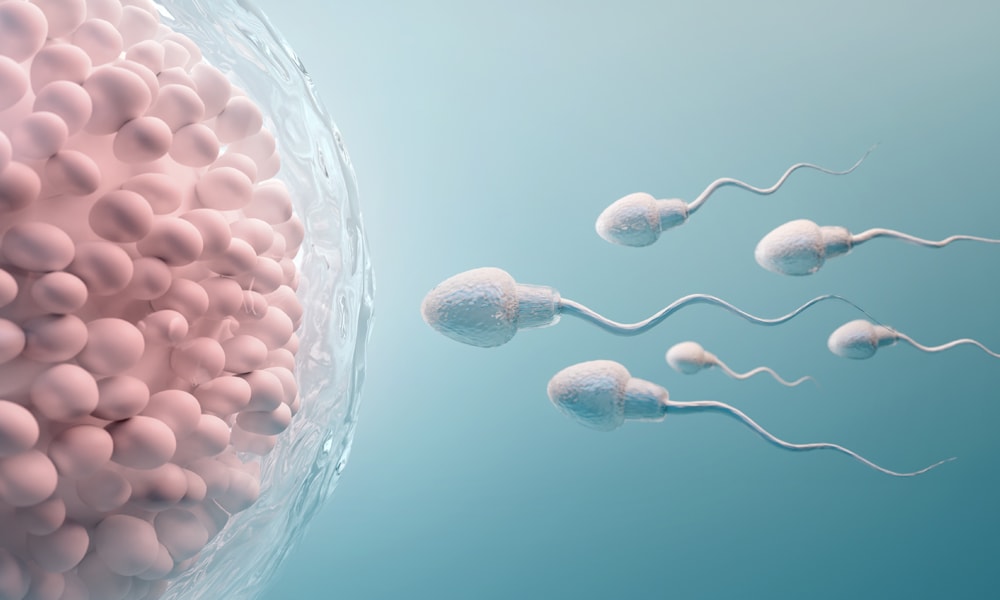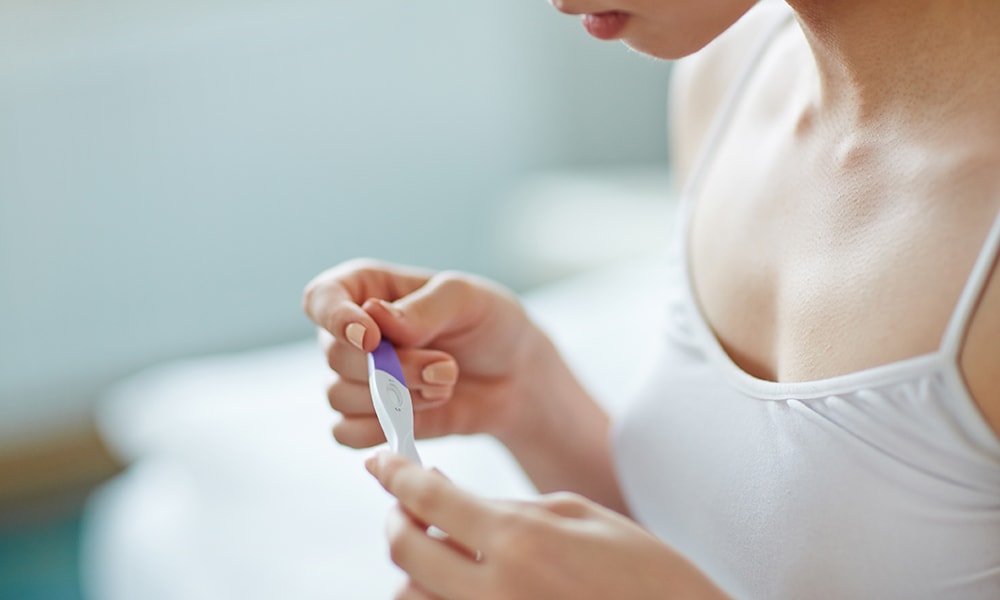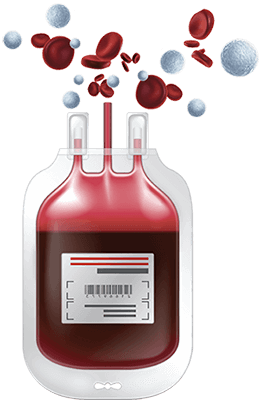Canada's Largest & Oldest Cord Blood Bank
Congratulations! You are pregnant. At 3 weeks, you are so early in your pregnancy. Most expectant moms do not even realize they are pregnant at this stage.
This Week’s Highlights
Your baby is just a tiny ball of cells
The zygote starts its journey down to the uterus
Amniotic fluid starts building up in your uterus
Your Baby at 3 Weeks
Finally, the big moment you were hoping for has taken place. Your egg was fertilized by one lucky sperm, to produce a zygote, which is what the baby is referred to at this stage of pregnancy. The zygote marks the beginning of embryonic development. In the next few days, this single cell will continue to divide and ultimately go on to make the embryo.

Baby Development at Week 3
Fertilization happens in the oviduct, the tube that connects your ovaries to the uterus. The zygote must travel down from the oviduct into the uterus before implantation happens. Implantation is when the zygote attaches to the lining of the uterus.
By the time the zygote reaches your uterus it has gone through several cell divisions to make the blastocyst. The blastocyst is a hollow ball of cells, with some cells lining the outside and some cells in the middle. Cells on the outside go on to form the placenta, the essential connection between the mother and the baby. The cells on the inside produces the embryo and all of the cells and organs found in the baby.
It is still too early to miss your period. So, if you already know that you are pregnant, it’s likely you are in your fourth or fifth week of pregnancy. In that case, skip ahead to week 4 or week 5.

Pregancy Tip
If you take a pregnancy test this week it may not be positive, because your hormone levels are just not high enough in your urine. Be patient, wait another few days (or a week) and test again.

Your Bump at 3 Weeks
Some expectant moms feel bloating at this stage, but your belly will not likely show until at least week 20. Just remember every pregnancy is different!
How Your Body is Changing
Now that the zygote is making the journey down to the uterus, your body is preparing to support the growth of this precious baby. Hormones are key to establishing the ground work, which started the moment the egg was released.
Now, there is a new mass of cells called the corpus luteum inside the follicle (fluid-filled sac that housed the egg). These cells are busy making the pregnancy hormones, progesterone and estrogen. Progesterone preps the lining of the uterus for implantation, making it thick and spongy. The uterine lining supports the embryo after implantation until the placenta takes over at about 10 weeks.
At the same time, cells that go on to make the placenta are busy making the human chorionic gonadotropin (HCG). HCG stops the ovaries from releasing any more eggs, and promotes the production of more estrogen and progesterone. HCG is the hormone detected in a pregnancy test. By end of this week, your HCG levels may be high enough to give you a positive result.
Finally, the cavity that surrounds the uterus, the amniotic sac, starts filling with amniotic fluid. This sac will cushion your baby and keep him or her safe in the months ahead.
How Far Along are You?
3 weeks in, 37 weeks to go! You are at the beginning stages of your pregnancy. Even though pregnancy is measured in weeks this means you are in your first month of pregnancy.
Diet at Week 3
Now that you are pregnant, it is important to ensure you are eating healthy, well-balanced meals. You also should start taking a prenatal vitamin, which will provide you with essential pregnancy nutrients such as folic acid and vitamin D.

As we mentioned last week, getting appropriate amounts of the following 4 nutrients are key during pregnancy:
- Folic acid – Essential for preventing neural tube defects in babies. The recommended daily intake of 400 micrograms is included in prenatal vitamins.
- Calcium – Necessary to support proper bone and teeth growth. Recommended intake during pregnancy is 1000 micrograms/daily (1300 micrograms if you are between the ages of 14-18).
- Vitamin D – Vitamin D deficiency during pregnancy can lead to your baby having weak bones and teeth. Prenatal vitamins contain the recommended dose of vitamin D. You are at higher risk of vitamin D deficiency if you are of south Asian, African, Caribbean or Middle Eastern descent.
- Iron – Your blood volume increases during pregnancy. As a result, it is important to make sure that you get 27 milligrams of iron every day.
If you are having trouble deciding which prenatal vitamin will be suitable for you, feel free to approach a pharmacist at your local drug store.
Why Bank Stem Cells?
Back-to-basics series is aimed at addressing simple questions about cord blood banking. So why would you want to bank your new born baby’s stem cells?
With their capacity to grow and give rise to other types of body cells, stem cells can be used to treat disease. The iceberg is our favourite visual metaphor to describe the future benefits of cord blood banking.
The part of the iceberg that floats above the water line represents the current disease-fighting capabilities of stem cells. But clinical trials are confirming that the future potential of stem cells is as vast as what lies below the surface. Check out all the current and future uses for cord blood: https://www.healthcord.com/cord-blood-usage-overview/
What is Cryopreservation?
Exercise at Week 3
Pregnancy is a great time to get active and stay active. There are many benefits to building your endurance, strength and flexibility, including:
- Reduced pregnancy-related symptoms such as back pain, constipation, bloating and swelling
- Promotes healthy weight gain during pregnancy
- Better ability to cope with labour
- Lower risk of gestational diabetes
- Better sleep
- Ability to cope with hormonal changes
If you are not active already, you can start with low-impact aerobic exercises such as walking, cycling, yoga and pilates. You can also continue with your current exercise regime. Keep in mind that you may have to modify the intensity of your workout as your progress through your pregnancy.
Pregnancy Symptoms at Week 3
It may be too early to miss your period, but some expectant moms may start experiencing symptoms at this very early stage.
Tender breasts – Prickling or tingling sensations in your nipples is one of the earliest pregnancy symptoms that you may notice within a week of getting pregnant. These sensations are caused by the increase in blood supply to your breasts.
Changing sense of taste – Some expectant moms report a metallic taste in their mouth, and developing aversions to food they used to love. Again, pregnancy hormones are responsible for this change in taste.
Spotting or cramping – Implantation is sometime associated with bleeding. This spotting may be accompanied by cramping or a heavy feeling in your abdomen. You may also notice changes in vaginal discharge. All of these changes are normal.
Colour changes in your vulva – Your vulva and vagina usually are pale pink in colour. But the increase in blood flow that takes place during pregnancy can make them look darker.
Nausea– Increasing HCG levels are behind this pregnancy symptom. If your HCG levels are high enough to test positive in a home pregnancy test, you may also experience your first bouts of morning sickness this week. Experiencing nausea at 3 weeks may also mean that you are further along than you think. It may also mean you are carrying twins, because expectant moms carrying twins make more HCG.



